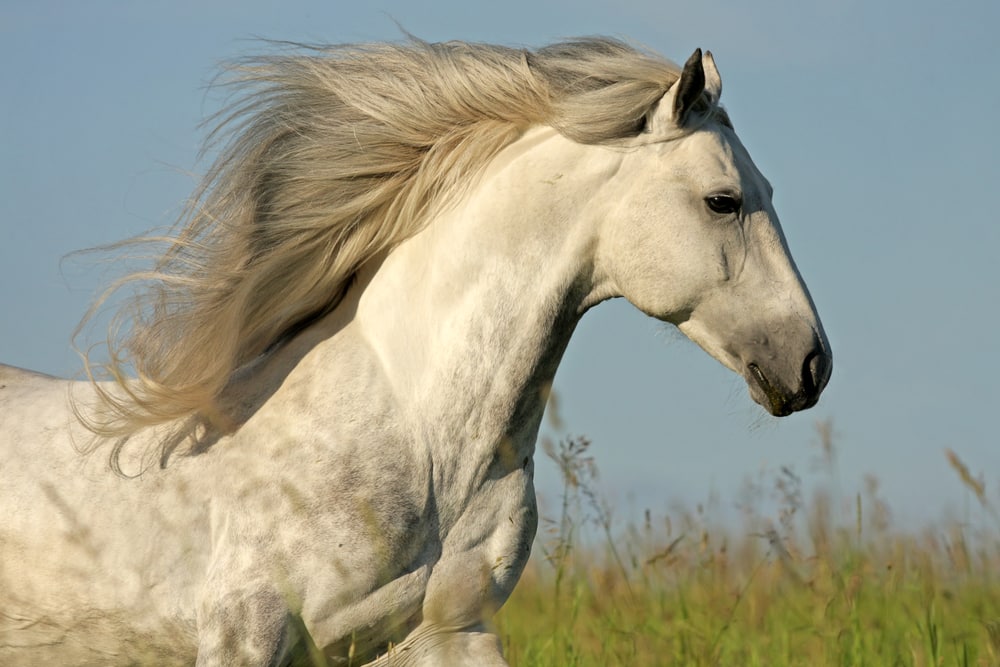Since the outbreak of the COVID-19 pandemic, people around the world have been asked to do their part to prevent the virus from spreading. Whether they developed a vaccine, cared for the sick, or simply followed health officials’ guidelines, all humans have had the opportunity to make a positive impact – but did you know that horses have also contributed to the prevention of COVID-19? In a roundabout way discussed in further detail below, horses played a part in the creation of the COVID-19 vaccine. This isn’t the equine population’s first confrontation with a coronavirus either. As some horse owners may know, horses have been dealing with their own coronavirus for years now: equine coronavirus.

How Horses Contributed to the COVID-19 Vaccine
More than fifteen years ago, scientists at the Centers for Disease Control and Prevention (CDC) collaborated with Fort Dodge Animal Health to develop a vaccine to protect horses from West Nile Virus. The resulting vaccine was the first licensed DNA vaccine in the world. An exciting and innovative scientific breakthrough, this vaccine carried great potential. As the CDC wrote in their July 2005 press release announcing the vaccine, “The technology could serve as a basis for future development of human vaccines.” This would prove to be an auspicious observation.
In 2020, in the early stages of COVID-19 vaccine development, researchers turned to the West Nile Virus vaccine designed to protect horses. The vaccine played a minor yet critical role in the vaccine development process.
Why was the development of a DNA vaccine so influential? Unlike conventional vaccines, which use a killed or inactive version of the virus to help the body build an immune response, DNA vaccines utilize a tiny portion of genetic material from the virus itself. This genetic material is injected into the patient, which causes the patient’s cells to transcribe the DNA into messenger RNA (mRNA). The mRNA produce proteins that trigger an immune response to defend the patient’s body against the virus. When compared to conventional vaccines, DNA vaccines offer two valuable advantages: shorter manufacturing times and no risk of causing disease in the patient.
The West Nile Virus vaccine developed for horses occupies an important place in the history of immunology. By providing evidence that DNA vaccines were safe and effective, it provided a stepping stone for current COVID-19 vaccine technology.
Equine Coronavirus: A Longstanding Threat to Horses
For over ten years now, horses have been dealing with their own coronavirus outbreak: equine coronavirus, also known as ECoV, which was previously linked with illness in foals. In 2011, outbreaks of ECoV began occurring in the United States. These outbreaks were associated with large horse operations, including show barns and boarding facilities, and primarily impacted adult horses. Between November 2011 and April 2012, researchers tracked 161 American horses with the disease.
ECoV infects horses of all ages, though it’s most prevalent in middle-aged horses in boarding facilities. Symptoms typically appear within 48 to 72 hours, and the morbidity rate is 20 to 57 percent. Common signs of ECoV include fever, choosing not to eat, or appearing depressed. Although most horses with ECoV respond well to treatment, approximately 7 percent develop fatal complications like shock and multiple organ failure.
Although no vaccine is available to protect horses from ECoV, the condition can be diagnosed quickly using polymerase chain reaction (PCR) and treatments are available to alleviate the symptoms. Additionally, more labs are including the PCR test as part of their standard panel for equine diarrhea, and more veterinarians are now familiar with ECoV, making it more likely infected horses will be diagnosed quickly.
Can humans contract ECoV? Fortunately, no. There is no evidence that equine coronavirus is infectious to humans.
Can horses be infected with COVID-19? No. While the virus may have originated in a species used for food and has been detected in a variety of wild animals (like tigers and gorillas) and domestic animals (like dogs and cats), there have been no documented cases of COVID-19 in horses or other livestock species.
Whether you or your horse have contracted a coronavirus, however, it’s important to follow basic safety and biosecurity procedures to prevent transmission.
Are you looking for a CRO to assist with your preclinical or clinical drug development related to the novel coronavirus or COVID-19? QPS has CLIA-certified and GLP-compliant laboratories ready to fast-track your novel coronavirus and COVID-19 RT-qPCR/QPCR and Serological Assays and vaccine development programs. Since 1995, QPS has provided discovery, preclinical, and clinical drug development services. An award-winning leader focused on bioanalytics and clinical trials, QPS is known for proven quality standards, technical expertise, a flexible approach to research, client satisfaction, and turnkey laboratories and facilities. For more information, visit www.qps.com/coronavirus or email covid19study@www.qps.com.







